Minimum unit pricing explained
Minimum unit pricing is included in the Public Health Alcohol Act 20181 . It was enacted on January 4th 2022.
What is the aim of minimum unit pricing?
The goal of minimum unit pricing is to stop strong alcohol from being sold in supermarkets and shops at very low prices.
What is minimum unit pricing?
Minimum unit pricing will set a minimum price of any alcoholic drink dependent on how much alcohol (in grams) is in it.
Under minimum unit pricing, the lowest price that can be charged for a gram of alcohol is 10 cent. A standard drink (see below) has 10g of alcohol in it. The lowest price therefore that could be charged for one standard drink once the law is in operation would be €1.

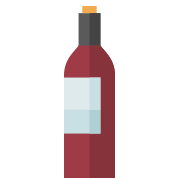

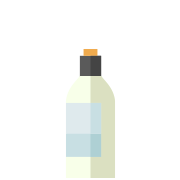
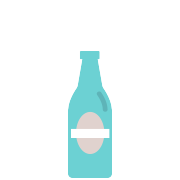

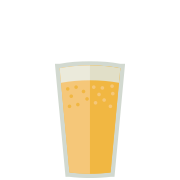



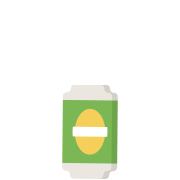
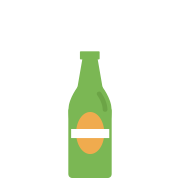
Source: McCance and Widdowson’s The Composition of Foods (2019)
What is a standard drink?
- A standard drink is a measure of alcohol. In Ireland, one standard drink contains 10 grams of pure alcohol.
- Common examples include a half pint of 4.5% lager, 100ml glass of 12.5% wine and a 35ml pub measure of 40% spirits.
What will cost more?
Minimum unit pricing will primarily increase the cost of very strong alcohol that is often sold at very low prices. The legislation does not mean that the price of all alcohol will increase, it is a minimum price per unit (10 grams) of alcohol and alcohol that is currently being sold above this minimum price is unlikely to cost more when the legislation is enacted – most premium brands will see no price change.
The price of a pint or other alcoholic drinks sold in pubs, clubs or restaurants will not be impacted by minimum unit pricing. This is because most drinks sold in pubs and restaurants already cost more than €1 per standard drink (10g alcohol).
Currently, it is possible for a man to consume his HSE low-risk weekly guideline limit for €7.48, while a woman can consume hers for just €4.84. 2
Minimum Unit Pricing will mean that a 500ml can of 4.2% stout will cost at least €1.66, a 14% bottle of wine will not be sold for less than €8.28, a bottle of 37.5% sprits will not be sold for less than €20.71, and a bottle of 43% spirits will not be sold for less than €23.75.
How to calculate minimum unit price:
To calculate the minimum unit price you multiply the volume in millilitres by the percentage of ABV by 0.789, divide by 100 to get grams of alcohol content and multiply by €0.10 for the minimum unit cost. [3]
Mls X (%)ABV X Density (0.789) /100 X 0.10 = Price
Below are examples of the minimum price that can be charged for alcohol once Minimum unit pricing is introduced :
| Type of alcohol | Volume (mls) | ABV % | Minimum price that can be charged under Minimum unit pricing |
|---|---|---|---|
| Can of beer | 500 | 4.3 | €1.70 |
| Can of cider | 500 | 5.5 | €2.17 |
| Bottle of wine | 750 | 12.5 | €7.40 |
| Bottle of strong wine | 750 | 14.8 | €8.76 |
| Bottle of Spirits | 700 | 40 | €22.09 |
Examples of baskets:
- 6 cans (500ml) of beer (4.3%) and 2 bottles of wine (12.5%) = €25
- 6 Cans (500ml) of cider (5.5%) and a bottle (70cl) of spirits (37.5%) = €33.73
- 4 bottles (750ml) wine (12.5%) = €29.60
- 24 cans (500ml) beer (4.3%) = €40.80
What is the expected effect?
By removing the cheapest, strongest alcohol from our shops, minimum unit pricing is expected to contribute towards reducing consumption amongst the heaviest drinkers (who typically buy the cheapest, strongest alcohol).
Reducing consumption amongst the heaviest drinkers is expected to reduce the harms associated with heavy drinking, including the harms experienced by families and communities.
Has it worked in other countries?
Early reporting indicates minimum unit pricing to be effective in Scotland:
- On average, weekly purchases of alcohol were reduced by 9.5g per adult per household
- Households with lower income showed the biggest reductions in alcohol purchases (by grams)
- Weekly spending on alcohol per household increased by only 0.61p3.
Does Drinkaware support minimum unit pricing?
It is intended that minimum unit pricing, when enacted alongside other interventions such as those in the Public Health Alcohol Act 2018 as well as comprehensive education and awareness programmes, will reduce alcohol-related harm in Ireland4. Our mission is to prevent and reduce the misuse of alcohol, and Drinkaware supports public health initiatives that will assist in achieving this important mission.
This webpage will be updated regularly as needed. If you have a question, please email info@drinkaware.ie.
If you are concerned about your own or a loved one’s drinking you can visit the HSE website for information on alcohol services or contact the HSE helpline.
-
References
[1] Public Health Alcohol Act 2018 https: http://www.irishstatutebook.ie/eli/2018/act/24/enacted/en/print.html
[2] HRB Alcohol Overview Series 11. 2021: https://www.hrb.ie/fileadmin/2._Plugin_related_files/Publications/2021_publications/2021_HIE/Evidence_Centre/HRB_Alcohol_Overview_Series_11.pdf
[3]To calculate the minimum unit price, taken from the Public Health Alcohol Act 2018: Mls X %ABV X 0.789 /100 X 0.10 = Price
[4] O’Donnel et al: ‘Immediate impact of minimum unit pricing on alcohol purchases in Scotland: controlled interrupted time series analysis for 2015-18’. 2019
[5] World Health Organisation: ‘Alcohol pricing in the WHO European region: Update report on the evidence and recommended policy actions’. 2020 https://apps.who.int/iris/bitstream/handle/10665/336159/WHO-EURO-2020-1239-40989-55614-eng.pdf?sequence=1&isAllowed=y

